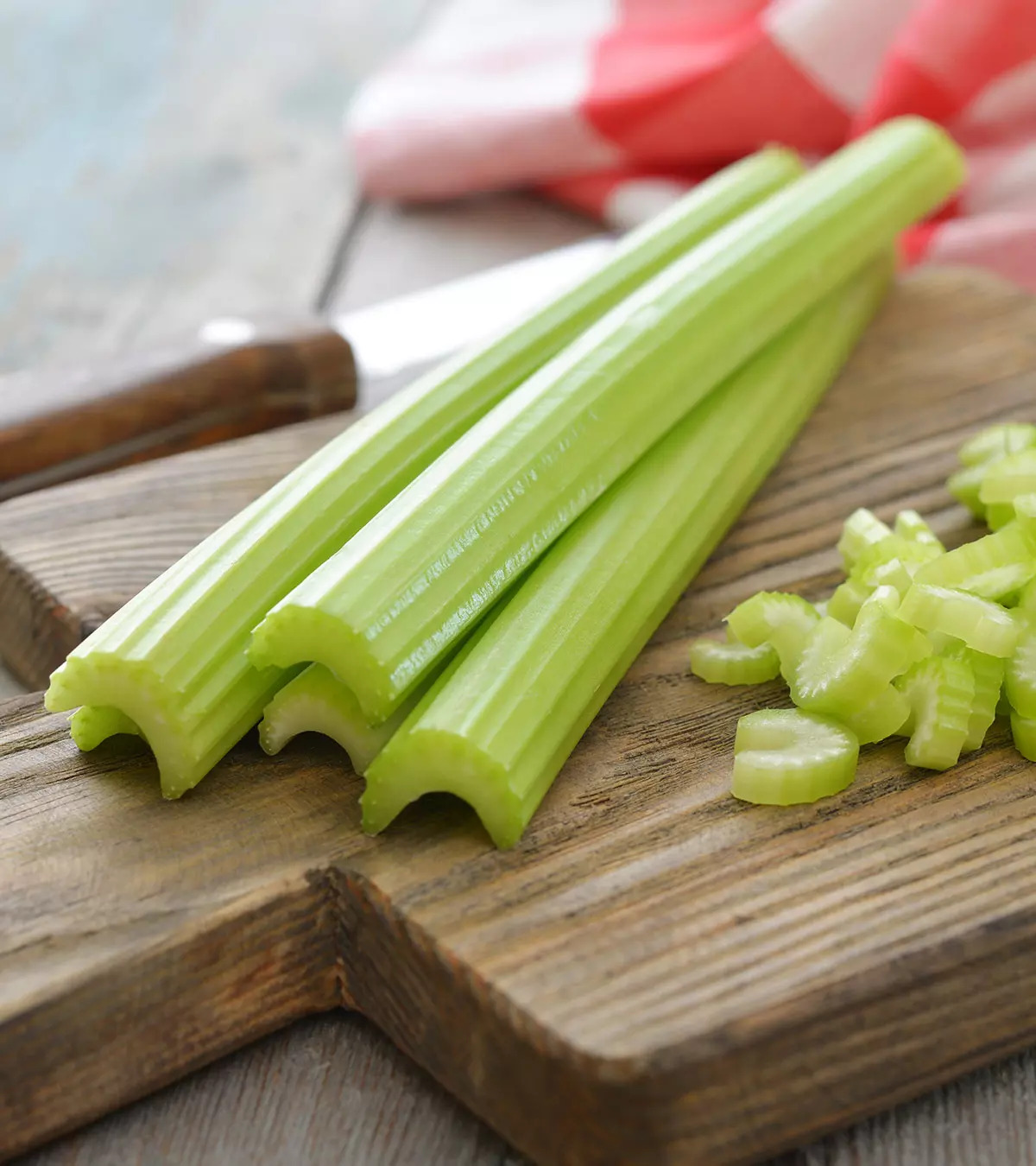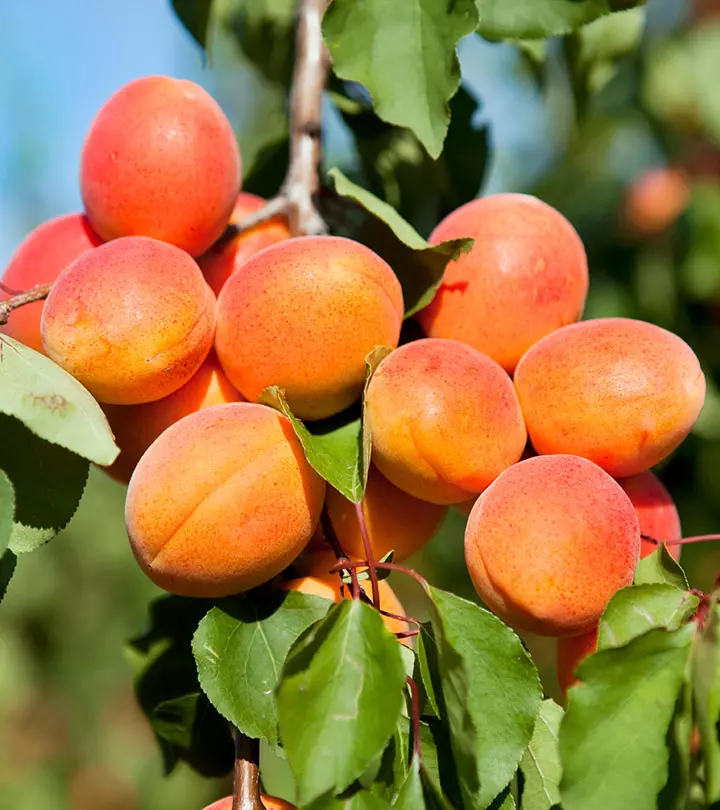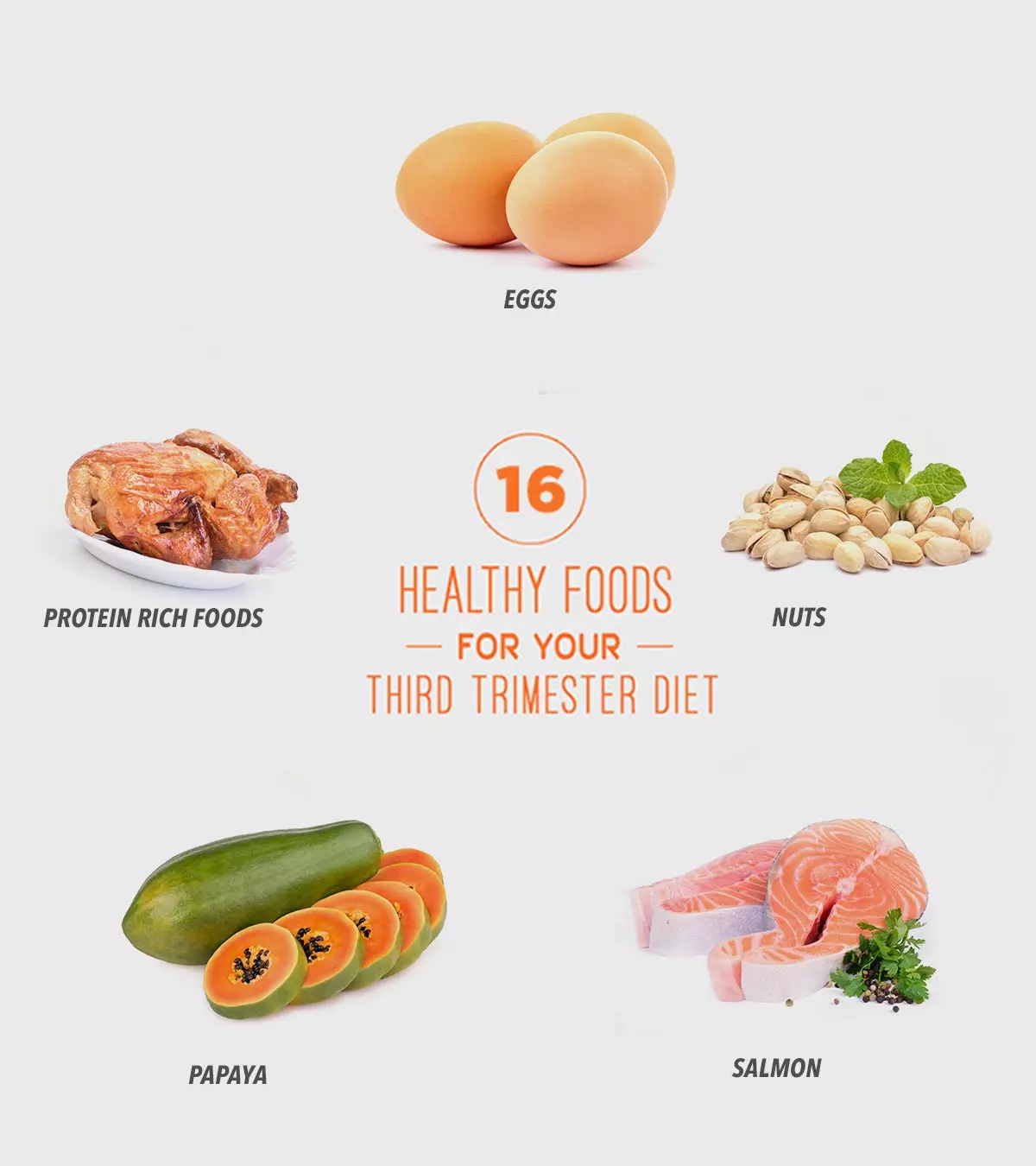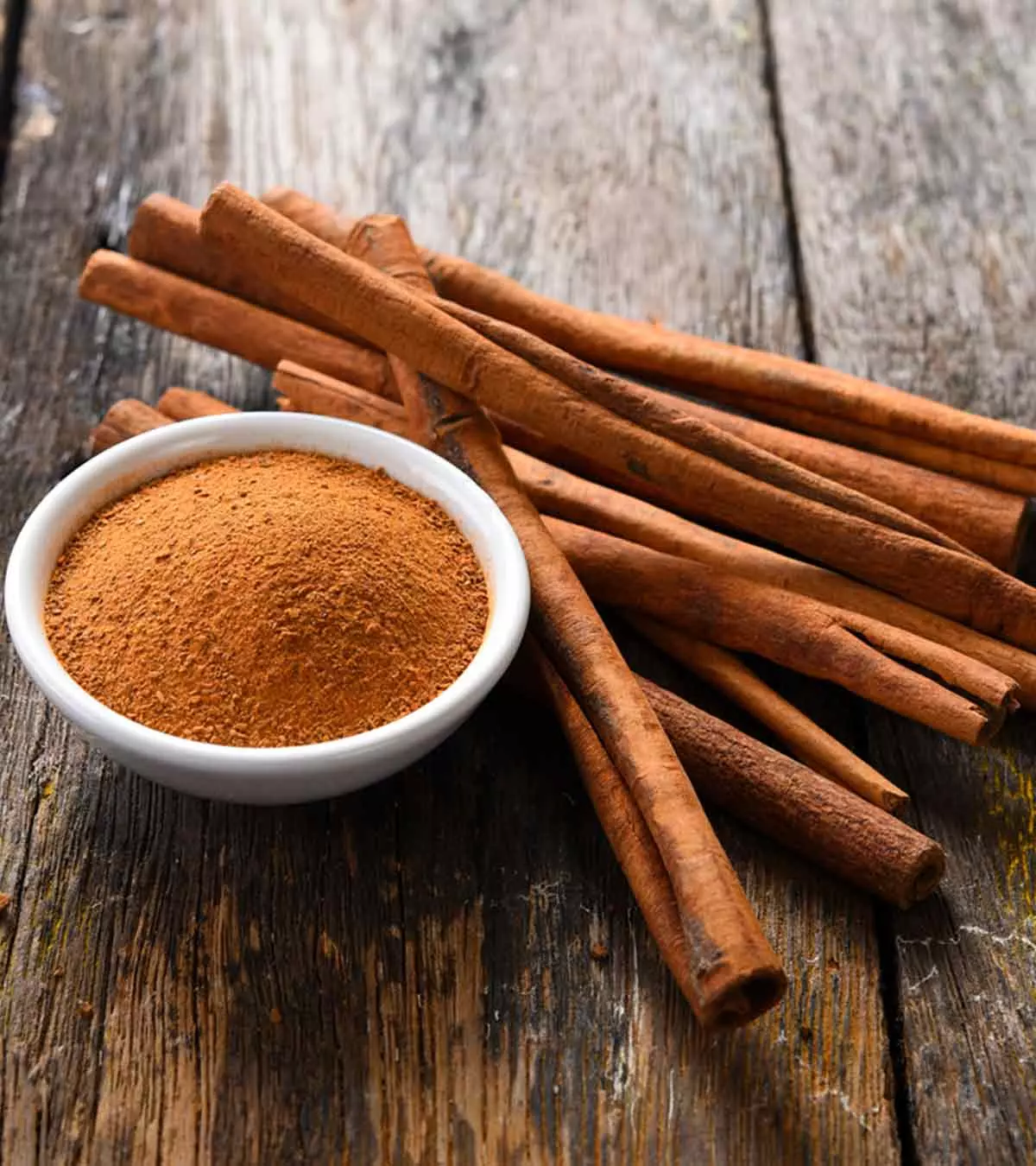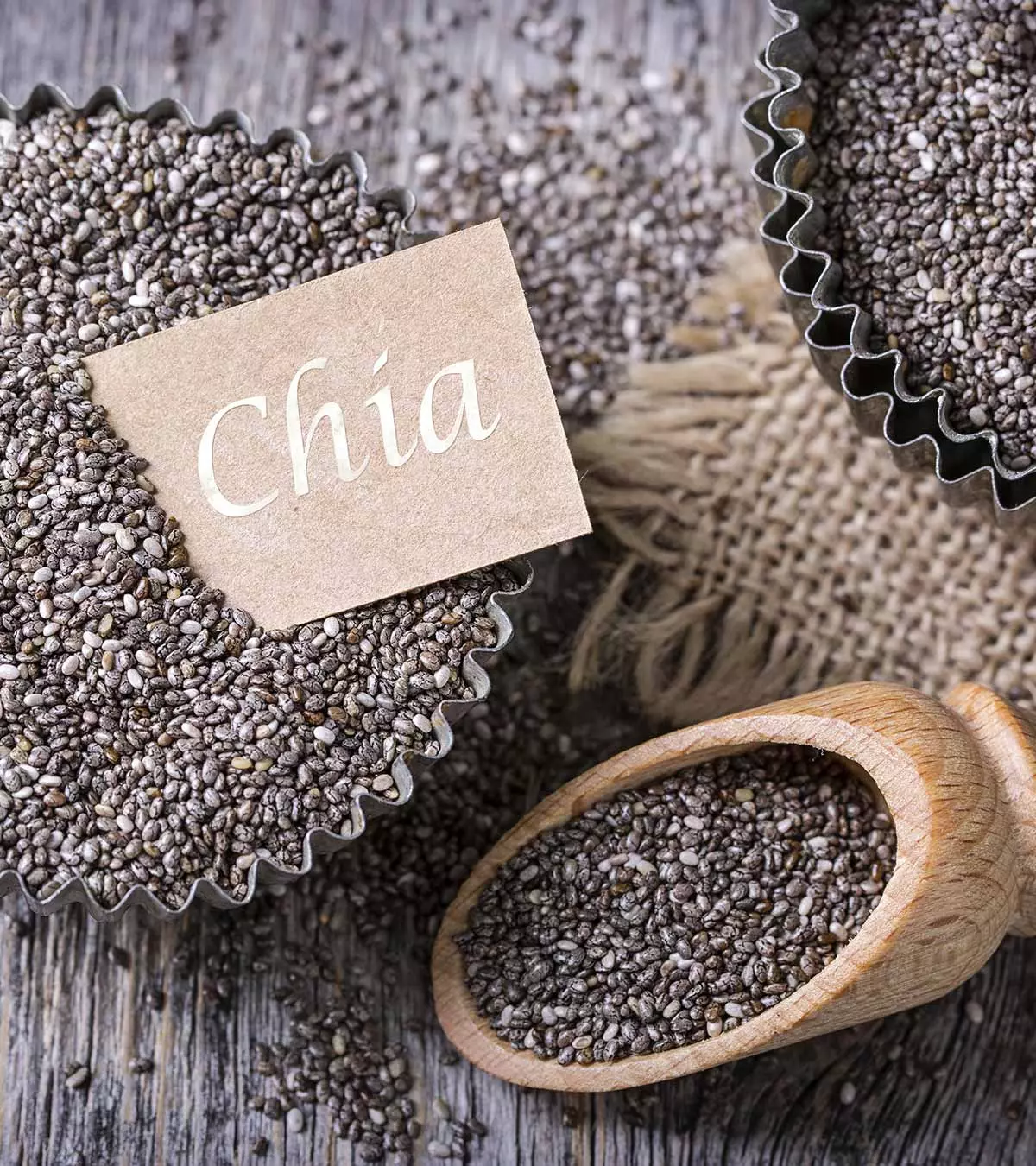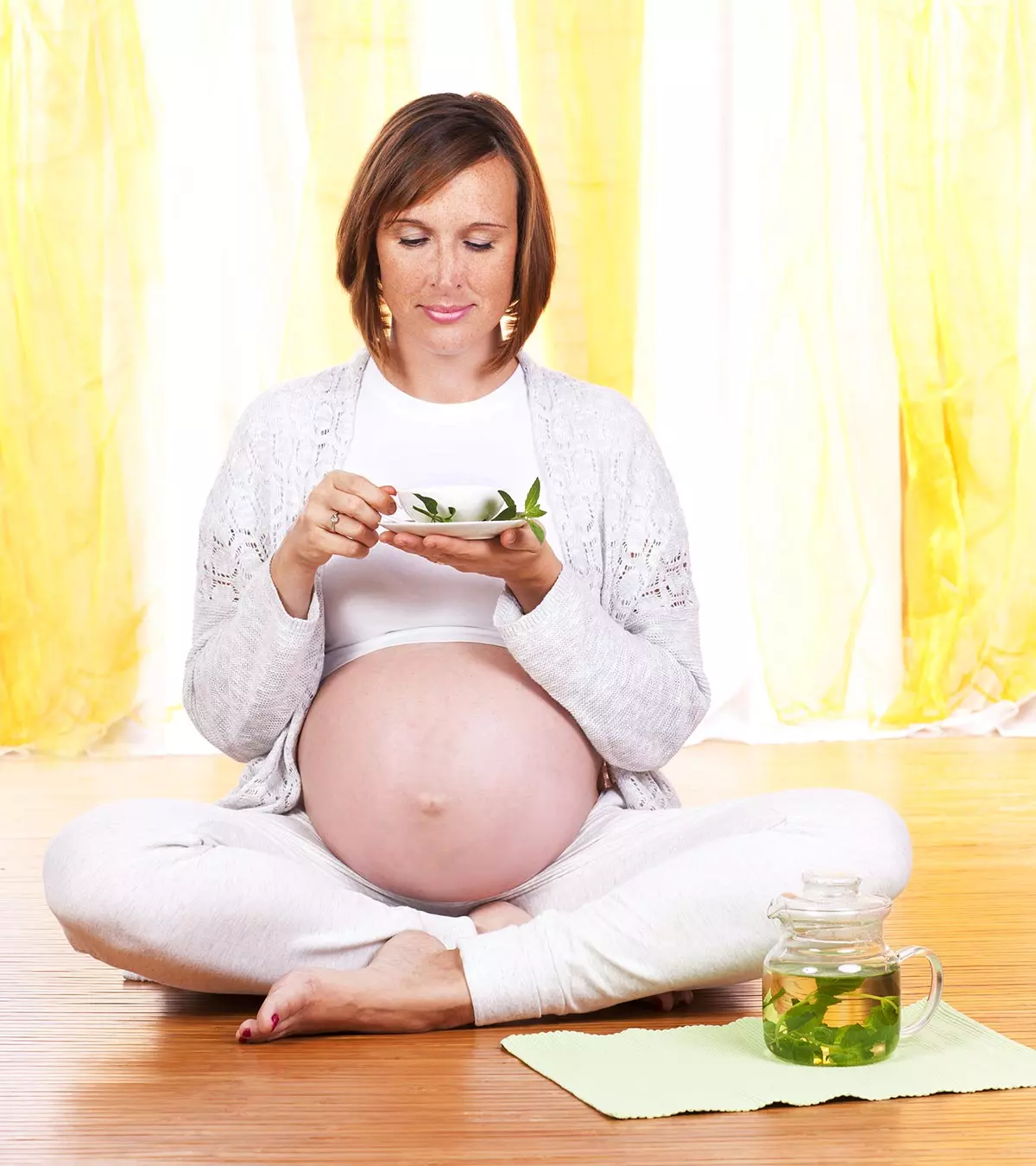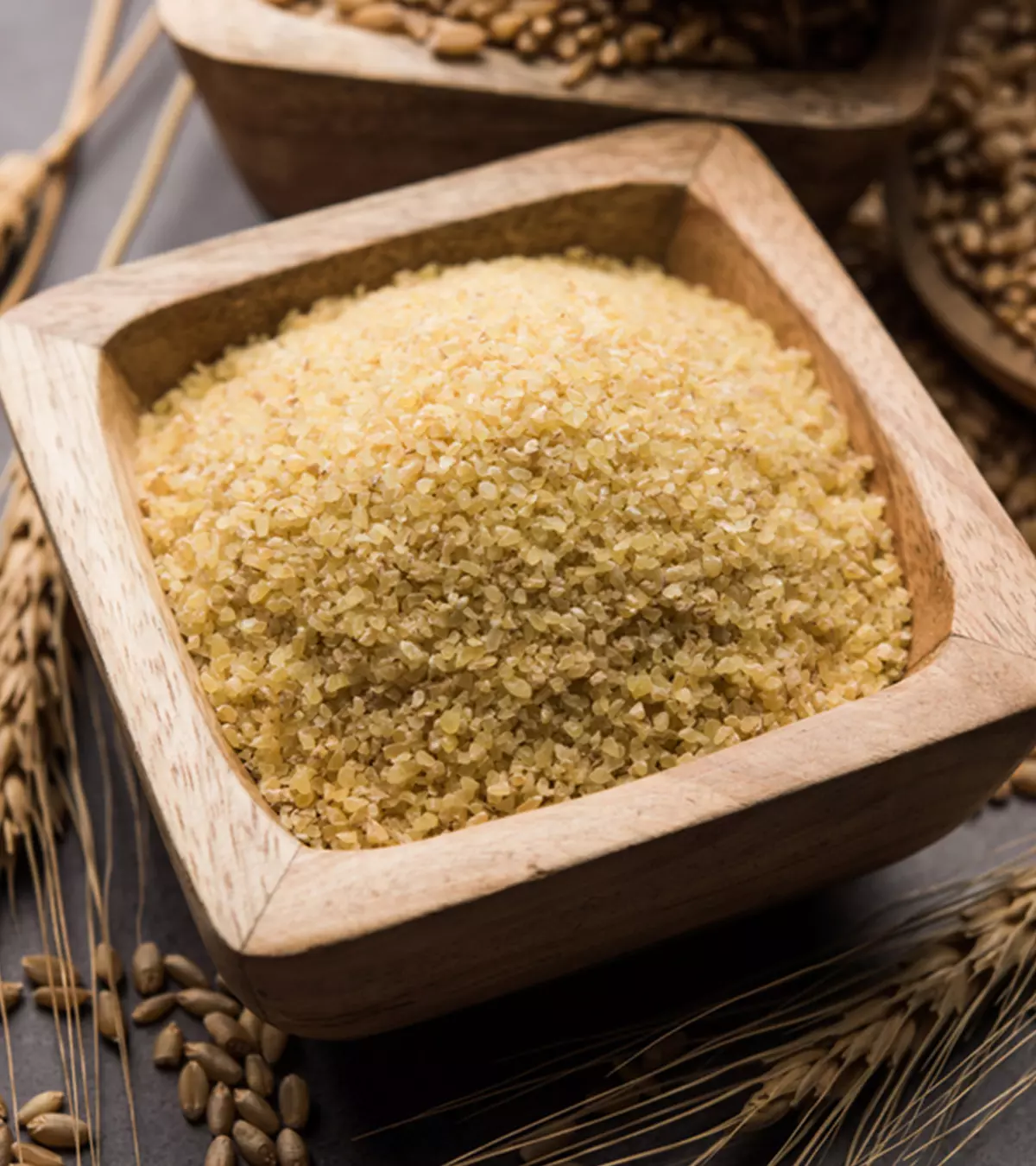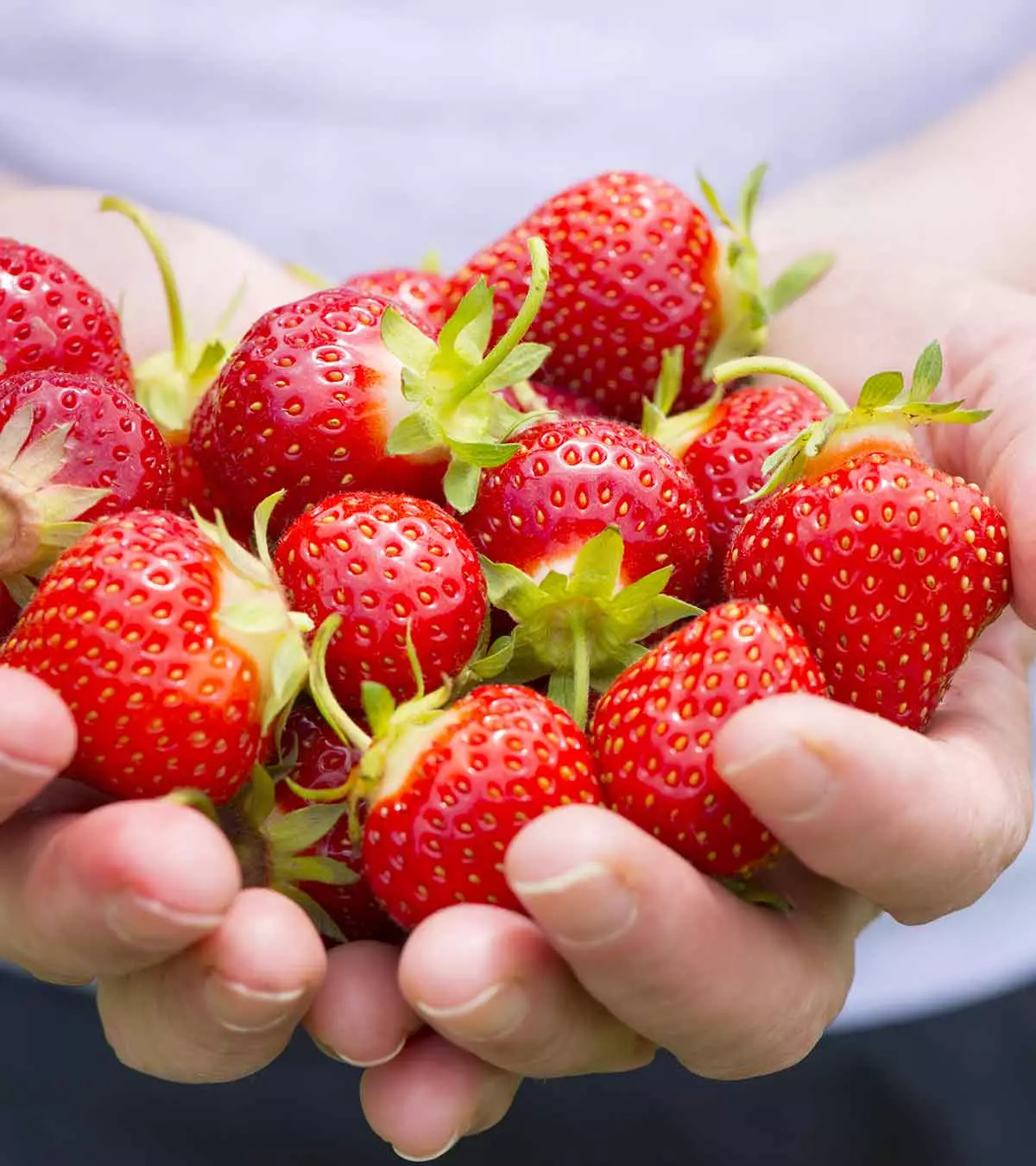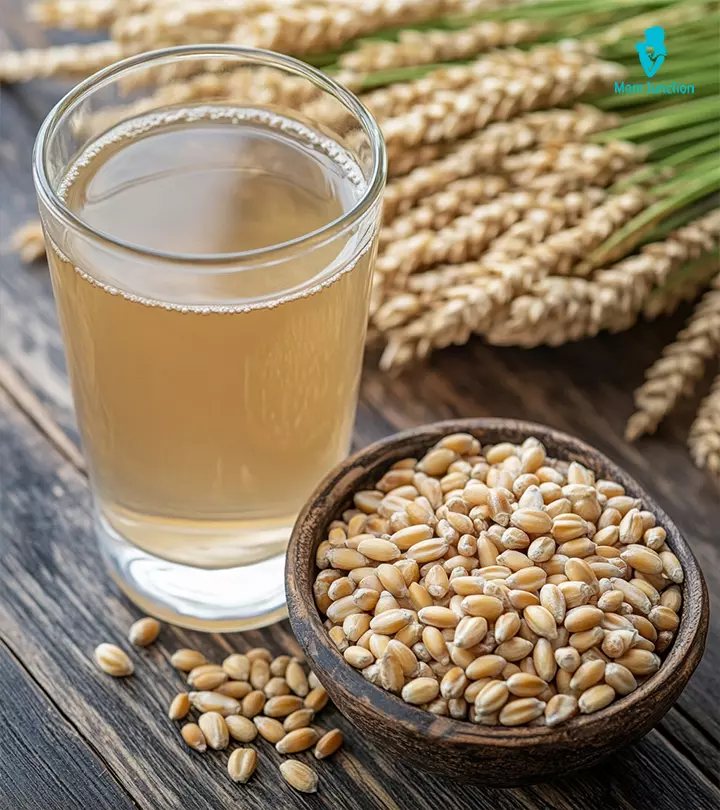
Image: Midjourney/ MomJunction Design Team
Barley is one of the oldest cereal grains known for its high nutritional value and health benefits. It is consumed worldwide in the form of bread, stews, malt, and soups. It is safe to consume barley during pregnancy in moderation. Anecdotal evidence suggests the use of barley water to reduce common pregnancy symptoms. However, excess consumption may make you sick, and in some women, it may also trigger gluten intolerance. Women with known gluten allergies and celiac diseaseiA chronic digestive autoimmune reaction to consuming gluten, affecting the small intestine should avoid barley and try gluten-free whole grains.. Read on to know the benefits and possible risks of consuming barley when pregnant and how much amount is safe for consumption.
Key Pointers
- Barley is an ancient cereal that can aid digestion, water retention, cholesterol, inflammation, and blood sugar in pregnant women.
- It is a rich source of essential vitamins and minerals, including folic acid and vitamin B6, which are critical for a healthy pregnancy.
- However, excessive consumption may cause abdominal cramps or gas in women with gluten allergies or a weak immune system.
- To make barley water, combine cooked barley, water, salt, sugar/honey, and lemon juice at home.
Is Barley Safe To Consume During Pregnancy?

Like most other foods, barley is safe to take in moderate amounts. Having it in excessive amounts might make you fall sick, especially if you have a weak immune system or gluten allergy.
Barley water or barley kanji is a common health drink for gut health that you can have in pregnancy. The nutty-flavored water might help ease indigestion (1), prevent water retention, and regulate blood sugar and energy levels (2).
Why Do Women Take Barley During Pregnancy?
A few studies have tried to understand the benefits this wholegrain can offer to pregnant women. Consuming barley is believed to be beneficial for maternal health in the following ways:
Mary Sabat, MS, a nutritionist and an ACE-certified trainer from Alpharetta, Georgia, says, “Barley may help reduce inflammation and regulate hormones; however, more research is needed in this area to confirm its benefits. Studies have indicated that eating barley may also help reduce cholesterol levels, which can help with hormonal imbalances. That said, speak to your doctor before consuming barley tea when pregnant.”
- Gastrointestinal problems: Being rich in dietary fiber, barley is believed to ease bowel movements, and help with constipation (3) and hemorrhoidsiA medical condition marked by swollen, inflamed veins around the rectum and anus (1). So, it can be a part of your healthy diet plan.
 Did you know?
Did you know?- Neural tube defects: Folic acid (or folate) is necessary for pregnant women to reduce the occurrence of neural tube defectsiSevere birth abnormalities of the central nervous system that develop in a developing fetus during pregnancy in babies. 100g of barley has nearly 200mcg of folic acid (4).
- Excess fluids: Researchers believe that the diuretic property of barley water could flush out the excess fluids from the body (5) thus helping you get relief from water retention in the legs, face etc., during pregnancy.

- Inflammation: In a research study done in China, barley grass was found to have anti-inflammatory properties that could provide relief from burning sensation in the stomach, and flush out toxins from the body (6).
- Cardiovascular diseases: The soluble fiber in barley was found to decrease blood cholesterol levels, and thus reduce the risk of heart diseases (7).
According to the Centres for Disease Control and Prevention (CDC), cardiovascular deaths accounted for 14.5% of pregnancy-related deaths in the United States from 2017-2019.
- Blood sugar levels: Barley falls under low glycemic foods (8), and therefore, can be taken moderate amounts even if you have gestational diabetes (2). Low glycemic food items are also good for combatting pregnancy weight gain and therefore barley can be one of the good foods to eat during pregnancy.

In spite of its benefits, barley in any form should be consumed in moderation to avoid any possible side effects.
Nutritional Facts About Barley
Barley is filled with essential vitamins and minerals, making it a nutritious choice during pregnancy. It is rich in vitamins like B6 and folate, crucial for fetal development. Barley also contains important minerals such as iron, which helps prevent anemia, and magnesium, which supports muscle function and overall maternal health (9). Adding barley to your diet can provide a balanced source of nutrients that benefit both the mother and the baby.
Are There Any Side Effects Of Consuming Barley During Pregnancy?

Barley, in any form including the barley water, rarely has any side effects. But having it in high quantities might cause abdominal cramping, bloating, and gas.
As it contains gluteniProteins found in cereals, such as barley and wheat, known for their elasticity , it is good to avoid barley if you have gluten intolerance or wheat allergy. Also, avoid eating raw or sprouted barley if you have a weak immune system.
 Be watchful
Be watchfulHow To Make Barley Water?
Barley water can be made at home. To make a glass of barley water, you will need one-fourth cup barley grains, three cups water, and a little salt or sugar for enhancing its taste.
- Wash barley thoroughly and soak in some water for at least four hours.
- Strain the water, and add three cups of fresh water.
- Cook the grains until they become soft, and water turns translucent.
- Strain the liquid, and add salt or sugar.
- You may also add some honey or lemon juice for an added flavor.
- Drink it warm.
 Quick tip
Quick tipNote: You can also use the cooked barley in salads or roast them with vegetables. They add fiber to your diet.
Next, we answer some common queries that might help you to know more about barley consumption during pregnancy.
Frequently Asked Questions
1. Can you take barley grass during pregnancy?
Barley grass is a good source of B complex and K vitamins (6), all of which are essential during pregnancy. It is available in the form of a powder that can be dissolved in water and consumed. Go for a natural and organic variety. But before that, talk to your doctor about it.
2. Can barley cause miscarriage?
There is no known direct threat from barley to your pregnancy. However, studies have found that women having celiac disease (triggered by gluten) have a history of miscarriage (10). Therefore, if you are sensitive to the gluten protein, then it is good to avoid barley for your digestive health as it contains gluten.
3. Is it safe for pregnant women to drink barley water every day?
Barley water should be consumed in moderation as excessive consumption might cause gastrointestinal problems. Your nutritionist or gynecologist can help you determine the suitable amounts.
4. What other grains can be safely consumed during pregnancy?
Other pregnancy-safe grains include millet, brown rice, and oats, which provide various health benefits. These grains are generally well-tolerated during pregnancy and contribute to a balanced diet (11).
5. Is barley good for gestational diabetes?
Studies indicate that the beta-glucans present in barley are effective in reducing hyperglycemia, hyperlipidemia, and high blood pressure. Moreover, the carbohydrates in barley get digested without raising blood glucose levels, thus exhibiting anti-diabetic benefits. Since regular consumption of barley is beneficial for controlling diabetes in the non-pregnant population, it may also be beneficial for pregnant women (14)(15). However, it is best to consult your doctor about the safe quantity before including barley in your pregnancy diet, especially if you have gestational diabetes.
If you are looking for nutritional and healthy ways to cope with pregnancy’s side effects, such as constipation, water retention, or inflammation, consuming barley during pregnancy can help you. However, be careful not to exceed the recommended amount in order to avoid any adverse reactions or pregnancy health complications. Before making barley a part of your prenatal nutrition, you may consult your ob/gyn to learn about recommended consumption and include it in your meals or drink it as barley water to start your healthy pregnancy journey.
Infographic: Why Do Women Take Barley During Pregnancy?
Barley is another grain added to the list of beneficial items to consume during pregnancy. If you are unsure about the benefits that it has to offer, read the following infographic. We have listed its potential advantages that you can share with your friends and family. If you are convinced, do remember to add barley to your next shopping list. Illustration: Momjunction Design Team
Illustration: Barley During Pregnancy: Safety Health Benefits And Risks
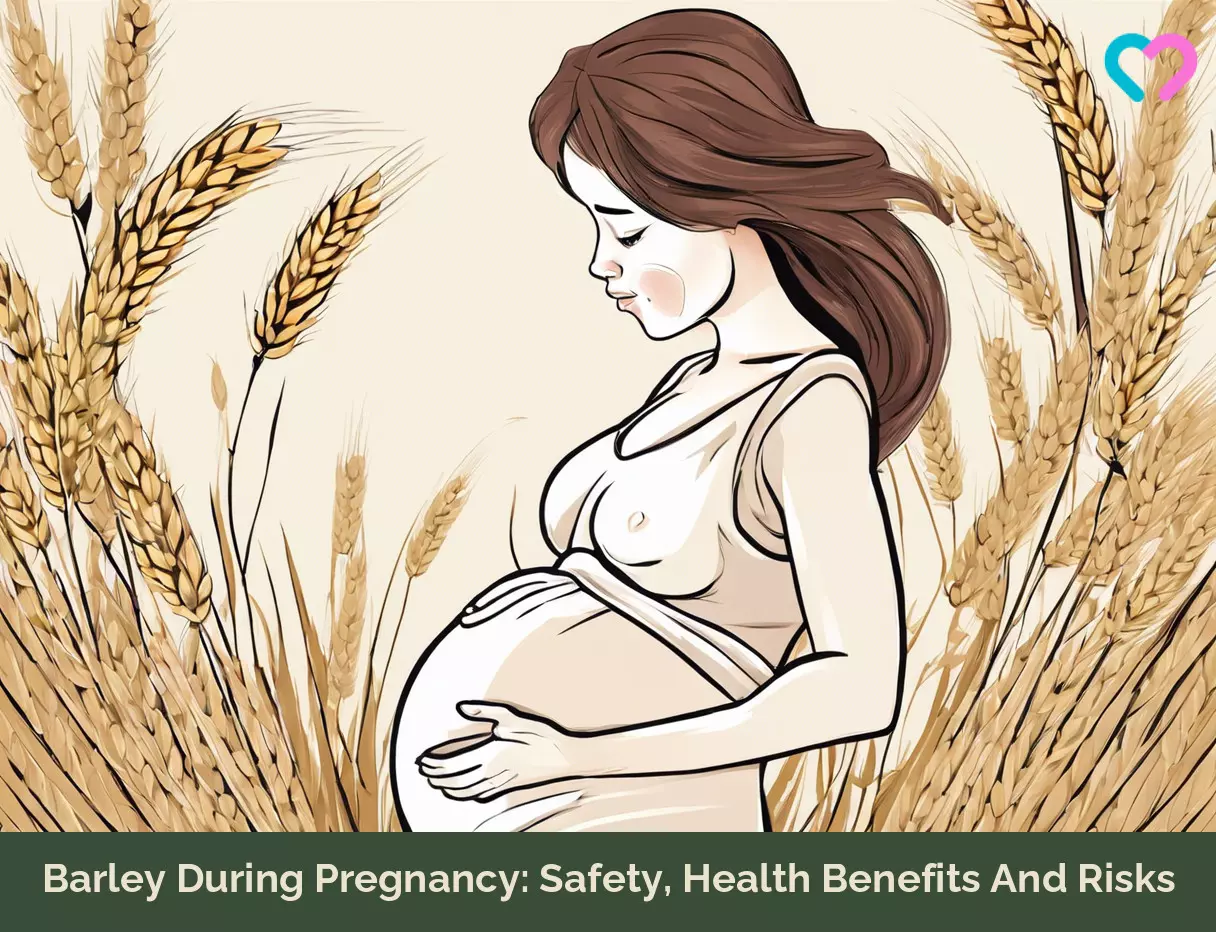
Image: Stable Diffusion/MomJunction Design Team
References
1. Bank on Barley for a Health Boost;Cleveland Clinic
2. Diabetes diet – gestational; NIH
3. Fiber; Linus Pauling Institute | Oregon State University
4. Folic acid; University of Rochester Medical Center
5. Barley-water a powerful diuretic; Am J Dent Sci (1845)
6. Yawen Zeng et al.; Preventive and therapeutic role of functional ingredients of barley grass for chronic diseases in human beings; Oxid Med Cell Longev (2018)
7. Behall KM et al.; Lipids significantly reduced by diets containing barley in moderately hypercholesterolemic men; J Am Coll Nutr (2004)
8. Glycemic index and glycemic load; Linus Pauling Institute | Oregon State University
9. Barley, hulled; U.S. Department of Agriculture
10. Tursi A, Giorgetti G, Brandimarte G, Elisei W; Effect of gluten-free diet on pregnancy outcome in celiac disease patients with recurrent miscarriages; Digestive Diseases and Sciences (2008)
11. Eat Healthy During Pregnancy: Quick Tips; OASH
12. Barley – February Grain Of The Month; Whole Grains Council
13. P. G. Baker and A. E. Read; Oats and barley toxicity in coeliac patients; National Library Of Medicine
14. Barley; Defeat Diabetes Foundation
15. Jiezhong Chen and Kenneth Raymond; Beta-glucans in the treatment of diabetes and associated cardiovascular risks; NCBI
Community Experiences
Join the conversation and become a part of our nurturing community! Share your stories, experiences, and insights to connect with fellow parents.
Read full bio of Jyoti Benjamin
- Mary Sabat is certified in personal training by the American Council of Exercise (ACE) and has 30 years experience as a fitness trainer, diet planner, and holistic health coach. She did her BS in Dietetics and Nutrition at University of Delaware and MS in Human Nutrition with an emphasis on Exercise Science, at Rutger’s University.
 Mary Sabat is certified in personal training by the American Council of Exercise (ACE) and has 30 years experience as a fitness trainer, diet planner, and holistic health coach. She did her BS in Dietetics and Nutrition at University of Delaware and MS in Human Nutrition with an emphasis on Exercise Science, at Rutger’s University.
Mary Sabat is certified in personal training by the American Council of Exercise (ACE) and has 30 years experience as a fitness trainer, diet planner, and holistic health coach. She did her BS in Dietetics and Nutrition at University of Delaware and MS in Human Nutrition with an emphasis on Exercise Science, at Rutger’s University.
Read full bio of Rebecca Malachi
Read full bio of Swati Patwal
Read full bio of Dr. Joyani Das








